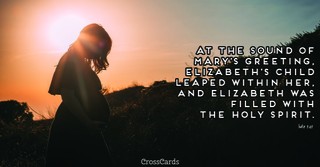- Recent Translations
- All Translations
Luke 1:4
Share
Settings
Luke 1:4 Meaning and Commentary
That thou mightest know the certainty
The end the evangelist had in writing this Gospel, and sending it to Theophilus, was, that he might be more strongly assured of and more firmly established in the truths of the Gospel. The Vulgate Latin, Syriac, and Arabic versions render it, "that thou mightest know the truth"; that is, the certain truth of things: the truth he did in some measure know before, but Luke's view was, that he might have a more certain knowledge of it; both truth, and the certainty of it may be intended: so the Hebrew word, (hnwma) , signifies both truth and firmness; and the word here used signifies such a certain evidence of things, as may be safely depended on; even
of those things, wherein thou hast been instructed;
or catechised, signifying, that he had been hitherto taught, as a catechumen, the rudiments, and first principles of the Christian religion, by word of mouth; and he had taken them in upon the evidence they came with, and the authority of those that instructed him in them; and now he sent him in writing this account, to increase his knowledge, strengthen his faith, and to give him such a sure proof of things, as might preserve him safe in the belief of them, from all doubting and defection. Having finished his preface, he proceeds to the narrative itself, which begins as follows.
